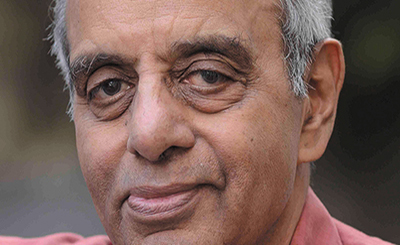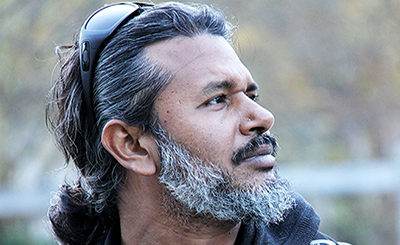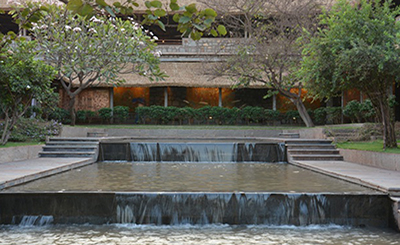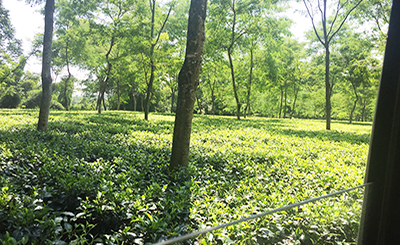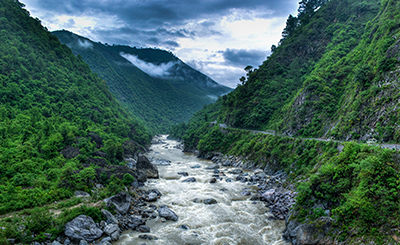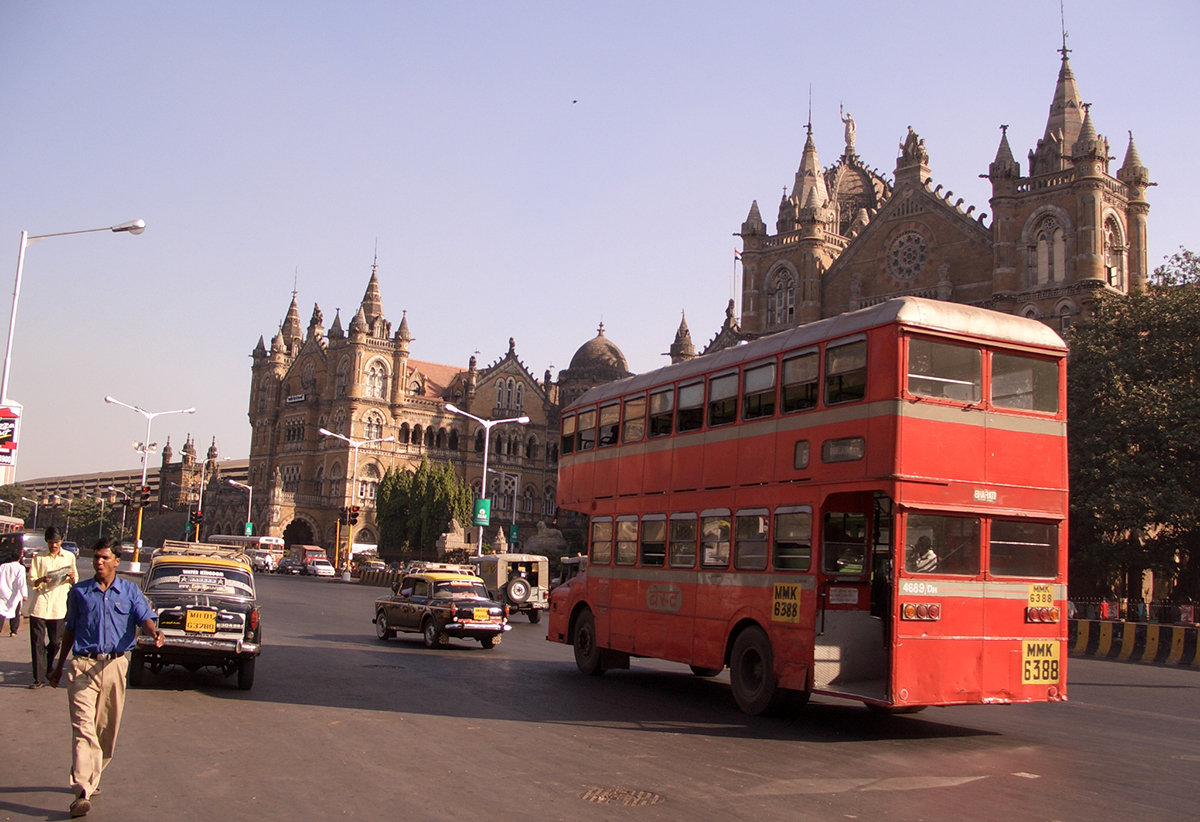
Photos courtesy: (top) Wikimedia Commons, (below) Vikas Sawant
A monthly column about miscellaneous things, curated by Palash Krishna Mehrotra
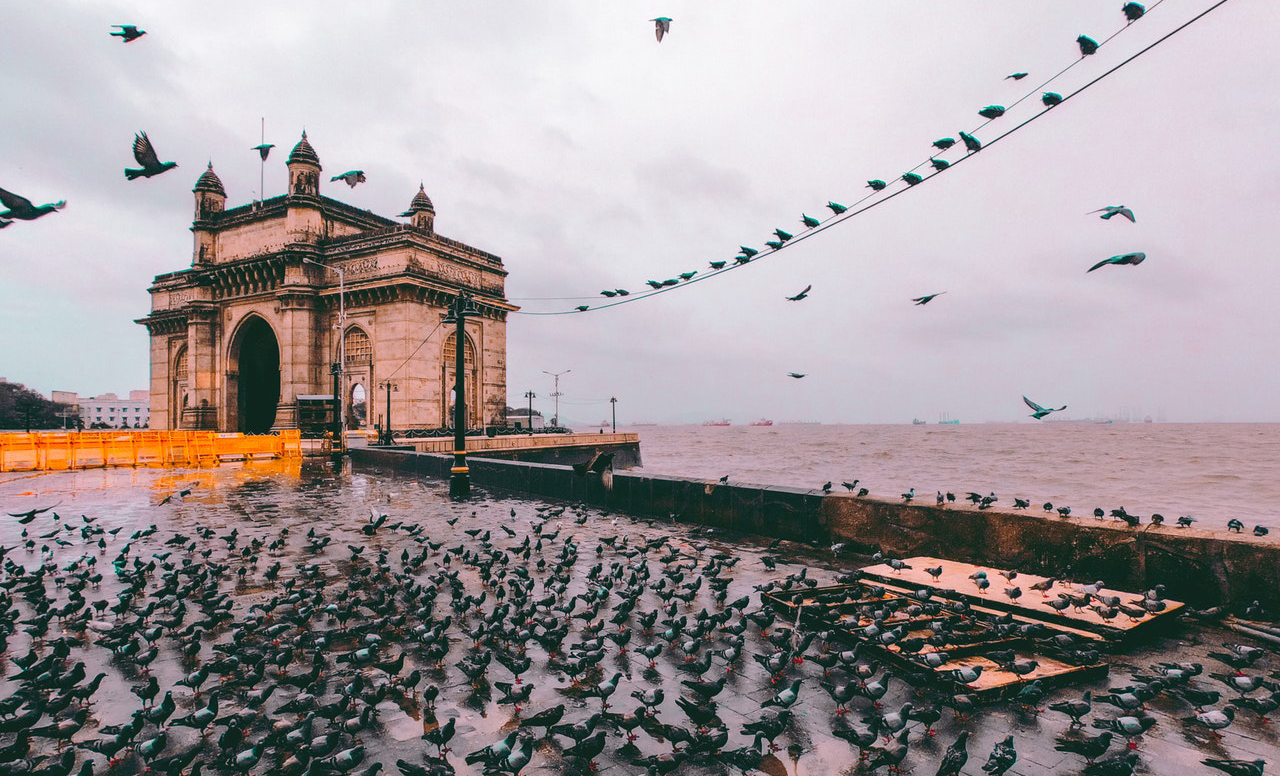
Donate Now
The train always ran on its tracks. Roaring in and out of the stations; giving you the flavour of each suburb; Gujarati, Tamilian, Parsi and in places like Dadar, clearly Marathi.
You imagined the rest of the suburb based on the real estate along the tracks. The buildings, shops and slums near the tracks advertising the rest of the suburb. It was a letterbox view of the suburb.
The train offered a serialized consumption of the city. Mumbai city laid out like a train map; you grasped it station by station. Your experience of the city, ordered exactly like that route map drawn by the door. You had learnt to give each station meaning through the sights and smells: This feels upper class, this is squarely middle class and this reeks of trouble. An income and class continuum. A class based unfolding of the city.
Whereas the bus, it took you into the heart of the city. It exposed you, not to a letter-box view but to a wide screen view of the city. In the bus, you were exploring the innards of the city. It was a real-time navigation of Mumbai and not one imagined from the railway tracks. You learnt the city by road names and not by subsequent stations. You glimpsed housewives buying vegetables, kids going to school, couples going to work. You saw people coming in and out of office buildings and you wondered what it must be like to work there; in Raymond’s or the Haffkine institute, or in the Express Towers. Your absorption more real, your perceptual map building more concretely.

The train was a locomotive; rushing you on its steely breath from point A to point B. You are ensconced in a tube, looking out at a one-dimensional world. You could sing songs inside the bogey or play cards, the train would get you to your destination. The train was for rushed people, for whom time was of essence. They wanted to cover a great distance, every day and metaphorically in life. They probably dreamed of moving up to a better station.
In comparison, the bus motored around. It was a meanderer. It stopped every few minutes. It unfolded the city gently, bus stop by bus stop. It gave you more to take in, in 3D, all around you. You moved in the bowels of the city, mapping things and places, relative to your position, your head moving gyroscopically. It was unhurried. It helped you to build a mental palace of the city in great detail. What the bus lacks in speed it made up for in richness. You could see homes you wanted to live in, schools you dreamt of for your future progeny and five-star hospitals you may afford, some day.
The bus let you dream with your eyes open.
More from The Byword
Comments
*Comments will be moderated




